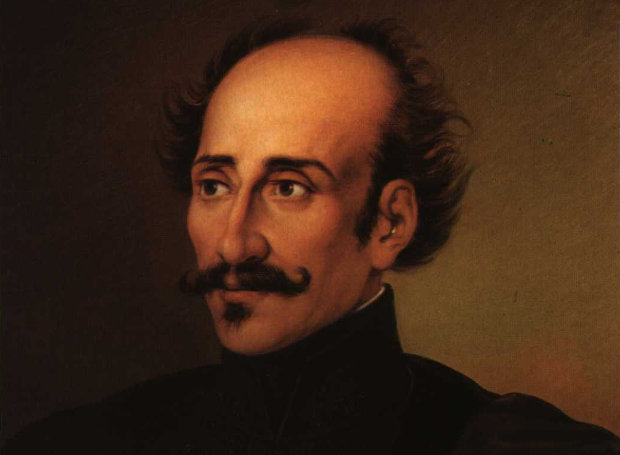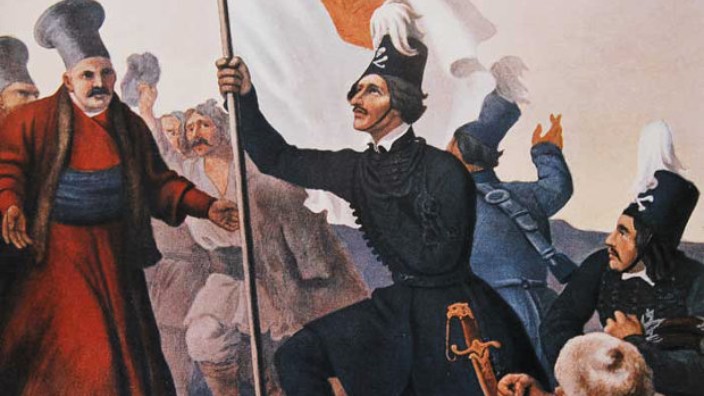On this day in 1821, the official declaration of the Greek Revolution of 1821 was made by Greek-Russian general and leader of the ‘Philikí Etaireía’ (the Friendly Society), Alexandros Ypsilantis.
To mark the momentous occasion in the lead up to March 25, we take a look at how the event played out.
Timeline of Events:
Alexandros Ypsilantis, as leader of the Friendly Society, set off from Russia, crossed the River Prut (the Russian border with the hegemony of Moldova, at the time) and arrived in Moldova, where he was welcomed by Michael Soutzos, ruler of Moldova and an initiate of the Friendly Society.
The two men, along with some 2,000 fighters, arrived in Iasi (the capital of Moldova) on February 22, 1821.
Two days later, Ypsilantis handed out the revolutionary proclamation “Fight for faith and country,” in which he asked the Greeks to revolt. Therefore, these acts marked the official inauguration of the Revolution in the Hegemonies (Dominions) around the Danube.

Who was Alexandros Ypsilantis?
Alexandros was born on December 1, 1792 in Constantinople and was the eldest son of Constantine Ypsilantis. He was brought up in an environment inspired by intense patriotism and received a fine education.
In St Petersburg, where he followed his father, he studied at the School of the Corps of Royal Followers and then served in the Corps of the Imperial Guard. He distinguished himself in the wars against Napoleon, while in the battle of Dresden, on August 27, 1813, he lost his right hand.
In March 1820, Emmanuel Xanthos offered Alexandros the leadership of the Friendly Society. He accepted it on April 12, after first accepting the terms he set, and immediately began organising the plan for the start of the Revolution from the Peloponnese.

However, with the encouragement of Ioannis Kapodistrias, Alexandros was convinced that he had to speed up its preparation and in June 1820 he settled in Odessa. He crossed the River Prut on February 22, 1821 and two days later finally raised the flag of the Revolution in the Danube and specifically in Iasi of Moldavia, where the stay of the Turkish army was forbidden.
In a letter to Emperor Alexander, he submitted his resignation from the Russian army and, announcing the Greek Revolution, asked for his help. Immediately after, he set about creating an army and formed the Holy Corps.
On June 7, 1821, Ypsilantis’ army was destroyed in the battle of Dragatsani and retreated to the Austrian border. He surrendered to the Austrians, was imprisoned and released on November 24, 1827.
His shaky health prevented him from helping the rebellious nation. He died in Vienna two months after his release on January 19, 1828.
Source: San Simera.

